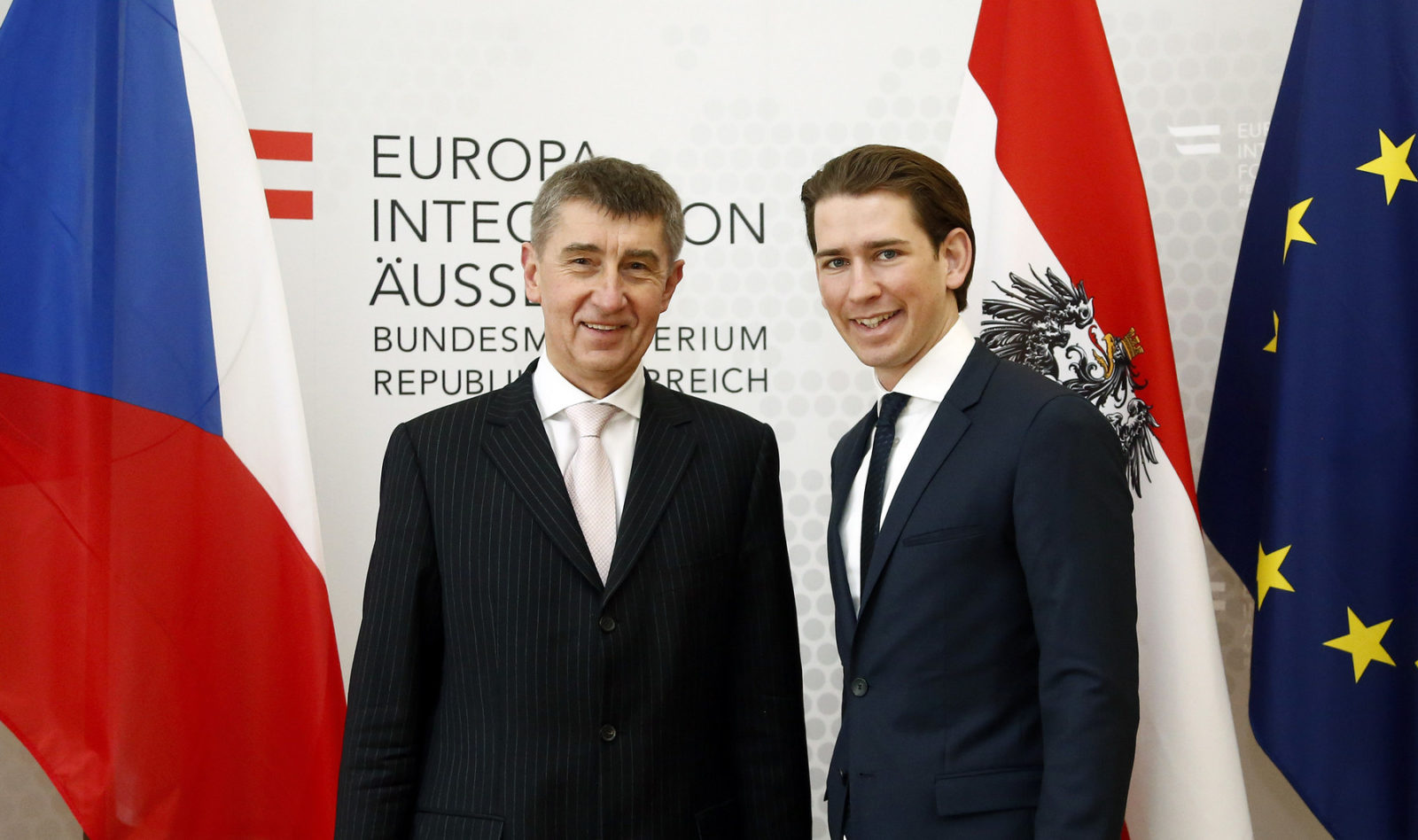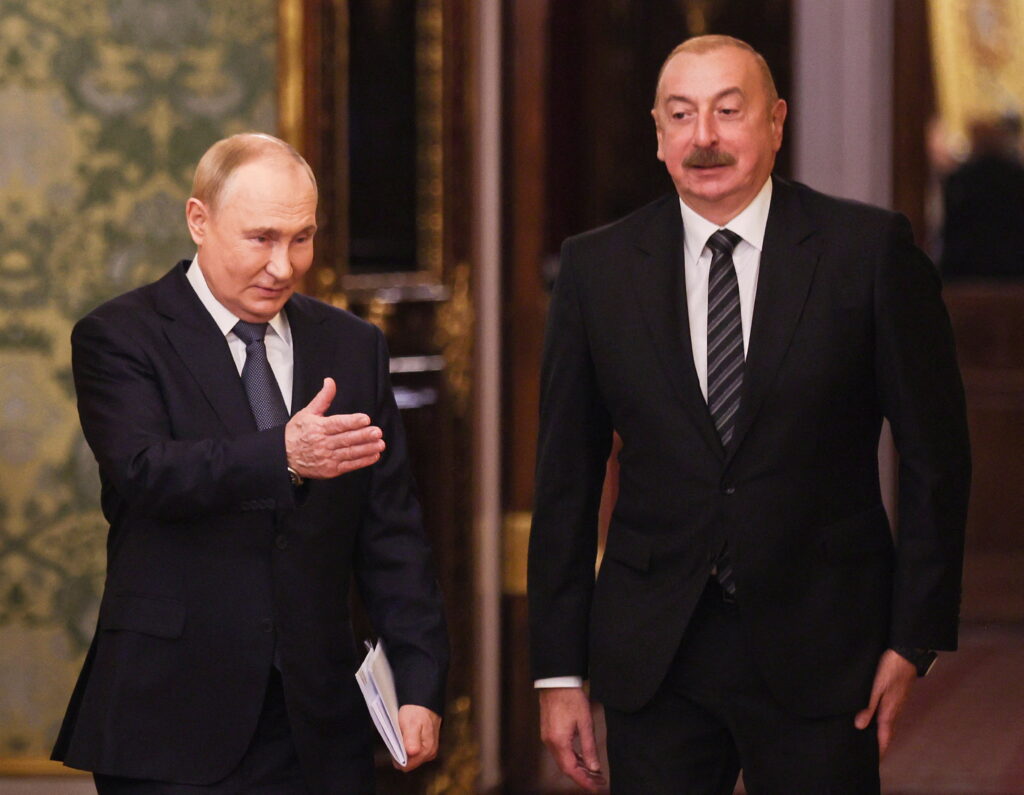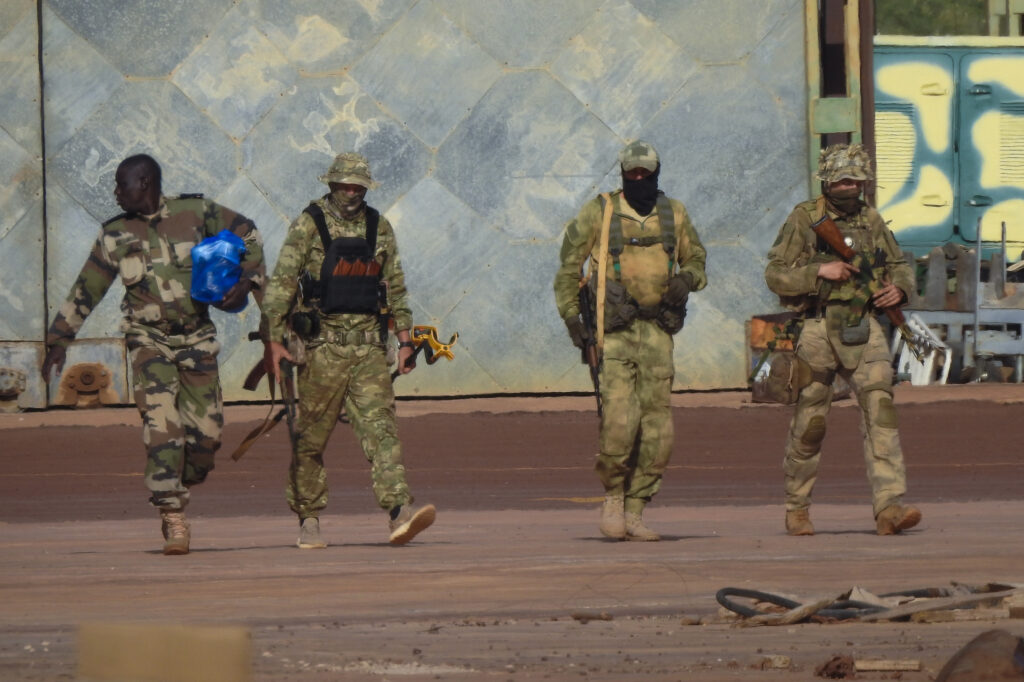Czech Prime Minister Andrej Babis is on the brink of being forced to resign. The opposition and even his partners in the ruling coalition from the Social Democratic Party want him out. Babis is accused of ordering the kidnap of his own son, who reportedly ended up hidden in the annexed Crimea. At the same time, in neighboring Austria, the government has had to adjust its foreign policy towards Russia. The reason for this forced change is the identification of Russian spies in the Ministry of Defense and Intelligence of Austria.
Today’s Czech and Austrian authorities are alike not only through their common past — that is, the long joint presence of the two countries within the Austro-Hungarian Empire. Their present politics have a similar thrust. Both states are controlled by populist governments and parties. The Austrian People’s Party is traditionally center-right, but under the leadership of current Chancellor Sebastian Kurtz, they have taken on a more populist complexion.
In its turn, the ANO (Yes) party of the Czech Prime Minister, billionaire Andrej Babis is a classic populist party with no clear ideology. But, like the Austrian People’s Party, ANO is positioning itself as center-right, while in practice they are boosting welfare commitments and introducing new benefits — policies that were once the preserve of the center-left. The second thing that unites both parties is their negative attitude towards migration and the promulgation of a staunch anti-immigrant agenda as a major talking point.
It is significant that only three countries in the EU refused to sign the UN migration pact: Austria, the Czech Republic, and Hungary, whose leader, permanent Prime Minister Viktor Orban, is sometimes called the only dictator within the European Union.
However, what’s important for us here is the third theme that unites Austria and Czech Republic (as well as Hungary), that is the loyalty of their ruling parties towards Russia. Victor Orban’s friendship with Moscow has long been quite evident. The current Austrian Chancellor Sebastian Kurtz spoke in favor of the abolition of EU anti-Russia sanctions when he was foreign minister and his partners in the ruling coalition, the far-right nationalist Austrian Freedom Party, signed a cooperation agreement with United Russia in 2016. Most recently, Vladimir Putin danced at the wedding of one of the leaders of this party, Foreign Minister Karin Kneissl.
As for the Czech Republic, the consensus view used to be that the truly pro-Russian politician in the country is President Milos Zeman, who is highly valued in the Kremlin. He spoke earlier for recognizing the annexation of Crimea if Russia pays compensation to Ukraine, and also consistently opposed European sanctions against Russian legal entities and individuals. Recently, he has been actively lobbying for a new tender for the completion of the Temelin nuclear power station, in which the Russian state company Rosatom has every chance of success.
However, the situation is changing with the latest scandal involving Andrej Babis, Jr. the son of the Prime Minister from his first marriage, who according to his own words was hidden in Russia and Crimea from Czech law enforcement agencies investigating the illegal receipt by his father’s company of European subsidies for small business. The key point in this story is not only the possible abduction and concealment of Andrej Babis Jr. in Crimea, but also the participation in this operation of Peter Protopopov, husband of the psychiatrist Vita Protopopova, member of the Prime Minister’s party and Babis Jr.’s doctor who diagnosed him with schizophrenia. At her request, Protopopov, who the media claims is a citizen of Russia, allegedly isolated the son of the head of the government somewhere in the annexed Crimea.
This allowed the Czech opposition to speak not only about the attempts of Andrej Babish Sr. to conceal a potential witness from the investigation and kidnap his own son, but also about the possible connections of the head of the Czech government with the Russian secret services. Without their knowledge, and perhaps even assistance, the Czech opposition press suggests, it would be impossible to hide a foreign citizen on the annexed territory, over which the increased control of Russian law enforcement and intelligence agencies is established.
“Russophobia” of democratic institutions
Thus, at once, two governments connected to Russia in Central Europe came under an unexpected blow and are experiencing serious reputational difficulties that could lead to their reformatting or even resignations. Of course, one can approach the problem in a conspiratorial manner, as does Babis, who speaks of a planned politically motivated attack on himself.
But in fact, it is a question of political institutions responding to the imbalance of a political system weighed down by populists. In Austria, it is the courts that fear pressure from the new authorities and are therefore supportive of the opposition; and the secret services, who were previously highly involved in preventing the activities of right-wing activists, have since come under pressure once some of these same activists joined the government.
Under pressure alongside these institutions are the national news media and president Alexander Van der Bellen, who, as a member of the Green Party, opposes the government of Sebastian Kurtz. The security services, responding to the government’s attempt to mute the spy scandal, apparently provided information to the press; the president expressed concern and the courts were ready to support him and the security services. Thus the government had no choice but to cancel the visit of the minister of foreign affairs to Moscow and make loud statements about espionage. Otherwise, most likely, in the near future, we would have started talking about the resignation of the cabinet of ministers or its individual members. By the way, this possibility isn’t gone entirely yet.
As for the Czech Republic, a different grouping has united here against the government of Babis. The president acts rather on the side of the Prime Minister, but the upper house of parliament, the Senate, is categorically against him. The ANO party lost the Senate elections in the fall of 2018, while the senators are well aware that Babis is in favor of liquidating the upper house of parliament altogether, calling its function of controlling the democratic processes in the country “redundant”.
The Prime Minister controls the largest media company in the country and is known for his criticism of the press. The majority of the media that remain beyond his control have united against him. Finally, the majority of parliamentary parties have united against him; however they do not have the sufficient majority in the lower house of the national legislative assembly to dismiss the cabinet of ministers without the help of the Social Democrats, now in the government coalition. Some Social Democrats on the other hand have already started to demand the resignation, but not of the entire cabinet – only Babis, who, according to their proposal, should be replaced by someone from their party.
Thus, despite the fact that what is happening is a rather usual interparty struggle, behind it we can notice a rebellion of democratic institutions against a populist government that is restricting freedom of the press, intending to dissolve the Senate, increase the role of referendums and introduce direct elections for municipal leaders, threatening the constitutional order in the country.
Anti-migrant populist political regimes associated with Russia in Central Europe almost simultaneously face resistance from democratic institutions that protect both their corporate interests and, of course, democracy in their countries as a whole. Thus, it can be said that the scandals in the Czech Republic and Austria, paradoxically, are not a sign of the weakness of democracy in these countries, but, on the contrary, its rootedness and resilience — proof of the existence of political actors interested in its preservation and sufficiently influential to put pressure on the government.










